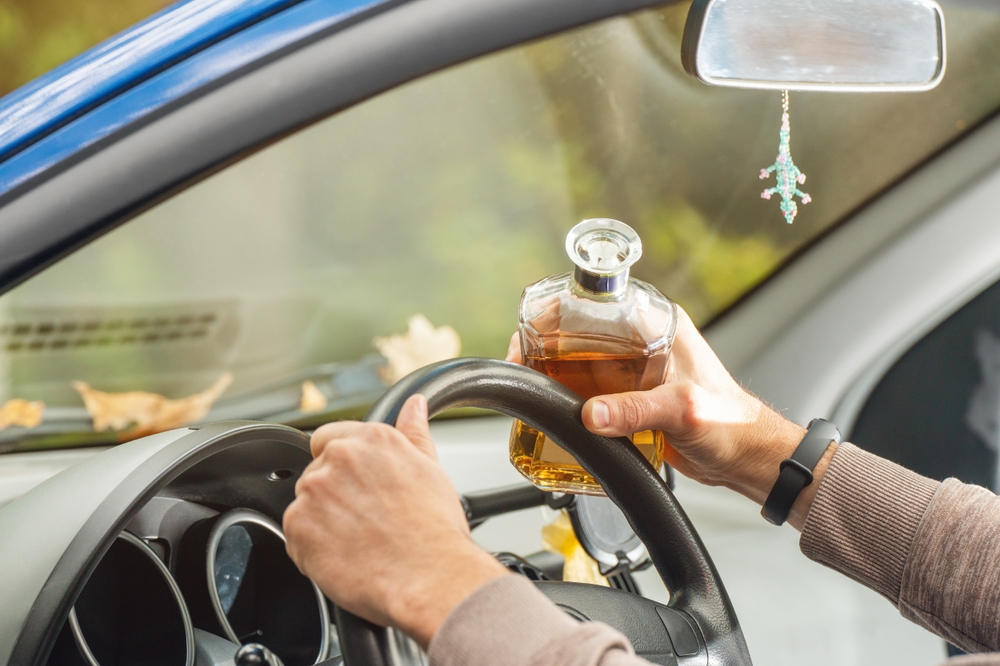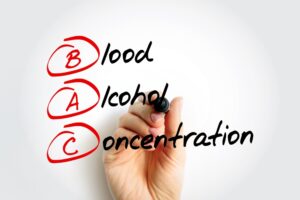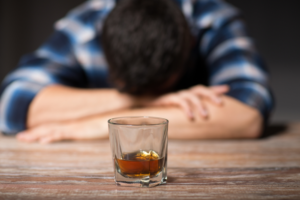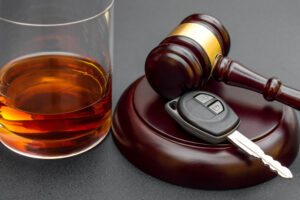Can I Have Just One Drink and Be Safe to Drive in West Palm Beach, FL?
Gregg Hollander | August 9, 2024 | Drunk Driving Accident Victims

When determining whether you can have just one drink and still be safe to drive in West Palm Beach, FL, the answer isn’t black and white. While it may be legal to have a blood alcohol concentration (BAC) of up to 0.08 percent, the reality is that even a single drink can impair your judgment, reaction time, and coordination, putting yourself and others at risk on the road. In addition, individual factors such as weight, metabolism, tolerance, and the type of alcohol consumed can also impact your impairment level.
To ensure your safety and the safety of others, it is always best to avoid drinking and driving altogether. If you ever suffer an injury in an accident caused by someone who was driving while impaired, contact a West Palm Beach DUI accident lawyer to pursue maximum compensation. A skilled drunk driving accident attorney will inform you of your rights and navigate the legal process.
Blood Alcohol Concentration (BAC) – What’s the Legal Limit in West Palm Beach, FL?
Understanding what blood alcohol concentration (BAC) is and the legal limits for driving in West Palm Beach, FL, is essential for making informed decisions about alcohol consumption and driving. BAC refers to the percentage of alcohol present in a drinker’s bloodstream. The legal limit for driving in Florida is 0.08 percent, meaning that if your BAC exceeds this limit, a police officer can charge you with driving under the influence (DUI).
Factors Affecting BAC Levels
Various factors can affect your BAC levels and the way alcohol impacts your body. The following is a brief look at some of the most important ones.
Body Weight

One significant factor that influences BAC levels is body weight. Generally, individuals with a higher body weight tend to have a lower BAC than those with a lower body weight. The reason is that alcohol becomes more diluted in a larger body mass.
For example, a person weighing 200 pounds will typically have a lower BAC than another person who weighs 150 pounds after consuming the same amount of alcohol. This dilution effect means that the alcohol concentration in the blood is lower for heavier individuals, reducing the immediate impact of the alcohol consumed.
Metabolism
Metabolism also plays a vital role in how quickly the body processes alcohol. The faster a person’s metabolism, the faster their body can eliminate alcohol. They’ll usually have a lower BAC as a result.
Several factors can influence metabolic rate, including genetics, age, gender, and overall health. Younger people and those with higher metabolic rates can often process alcohol more efficiently. On the other hand, a person with a slower metabolism may have higher BAC levels for a more extended period, as their bodies take longer to break down and eliminate the alcohol.
Tolerance
Alcohol tolerance refers to the body’s ability to handle alcohol. Regular and heavy drinkers tend to develop a higher tolerance to alcohol over time. This means they can consume more alcohol before reaching the legal limit or experiencing significant impairment.
However, you must know that tolerance doesn’t equate to immunity from impairment or legal consequences. Even with a high tolerance, the physical and cognitive impairments caused by alcohol can still pose serious risks, and high BAC levels remain dangerous.
Standard Drink Sizes and Alcohol Content
Understanding the concept of a standard drink and the alcohol content in different types of beverages is crucial for assessing BAC levels. In the United States, a standard drink contains about 14 grams (0.6 ounces) of pure alcohol. This standard helps drinkers gauge their alcohol intake more accurately. For instance:
- A 12-ounce beer has a five percent alcohol content.
- A 5-ounce glass of wine has an alcohol content of 12 percent.
- A 1.5-ounce shot of distilled spirits (such as vodka or whiskey) has a 40 percent alcohol content.
Different beverages have varying alcohol contents, which can significantly affect BAC levels. Knowing these differences can help you make more informed choices about your drinking habits.
Additional Factors
Other factors can also influence BAC levels, including:
- Gender: Generally, women tend to have higher BAC levels than men after consuming the same amount of alcohol due to differences in body composition and the amount of water in the body.
- Food intake: If you drink alcohol on an empty stomach, your body will absorb it faster. When it does, that leads to a higher BAC level. Eating food before or while drinking can slow down alcohol absorption.
- Rate of consumption: Drinking alcohol quickly can lead to higher BAC levels, as the body has less time to metabolize the alcohol.
- Medications and health conditions: Certain medications and health conditions can interact with alcohol, affecting its metabolism and increasing BAC levels.
How Alcohol Affects Driving Abilities
Alcohol can significantly impair a person’s driving abilities, even after consuming just one drink. Knowing how alcohol affects various aspects of driving can highlight the importance of avoiding driving under the influence. Here are the primary ways alcohol impairs driving abilities:

Decreased Reaction Time
Alcohol slows down the body’s reflexes and reaction time. This impairment means that if a driving emergency occurs, such as a pedestrian suddenly crossing the road or a car swerving into your lane, you may be unable to react quickly enough to avoid a collision.
A delayed reaction can be the difference between a near miss and a severe accident. For instance, at high speeds, even a fraction of a second delay can result in a significant distance traveled before a driver can respond, increasing the risk of an accident.
Impaired Judgment
Driving after drinking often leads to drivers taking risks or making poor choices they wouldn’t make when sober. Impaired judgment can result in reckless behavior, such as speeding, aggressive driving, or disobeying traffic signals and signs. These risky behaviors significantly increase the chances of getting into an auto accident. In addition, alcohol can create a false sense of confidence, making drivers believe they can drive safely when they can’t.
Poor Coordination
Alcohol also affects your motor skills and coordination, making it more difficult to control the vehicle and perform necessary tasks such as steering, braking, and accelerating. Poor coordination can increase the likelihood of a motor vehicle accident.
For example, difficulty maintaining lane position, improper braking, and erratic speed control are common signs of impaired coordination. This lack of control can endanger not only the impaired driver but also other road users.
Individual Differences in Alcohol Tolerance
While some may have a higher tolerance to alcohol than others, everyone experiences impairment at some level when consuming alcohol. Factors such as genetics, age, and overall health can influence an individual’s tolerance to alcohol. However, it’s impossible for someone to accurately determine their impairment level based on tolerance alone.
A person with high tolerance might not feel the effects of alcohol as quickly, but their reaction time, judgment, and coordination are still compromised. This false sense of security can be particularly dangerous, as people might underestimate their level of impairment.
Additional Impairments
Other effects of alcohol on driving include:
- Vision impairment: Alcohol can reduce visual acuity, making it harder to see clearly. This impairment can affect depth perception, peripheral vision, and the ability to track moving objects, all critical for safe driving.
- Concentration issues: Drinking can make it difficult to focus on the multiple tasks involved in driving, such as monitoring speed, staying in the correct lane, and observing traffic signals and signs.
- Drowsiness: Alcohol can also induce drowsiness, increasing the risk of falling asleep at the wheel. Drowsy driving is a major cause of accidents and can be as dangerous as driving under the influence.
The Risks and Consequences of Driving After Just One Drink

Driving after consuming even just one drink carries significant risks and potential legal consequences. In West Palm Beach, FL, being charged with a DUI can result in severe penalties, including fines, license suspension, mandatory alcohol education programs, probation, and even jail time. In addition, the consequences of a DWI can extend beyond the legal realm, impacting your reputation, employment prospects, and personal relationships.
It’s critical to remember that the legal limit of 0.08 percent isn’t a threshold for safe driving but rather the point at which the law considers someone to be legally intoxicated. Any amount of alcohol can impair your ability to drive safely and put yourself and others at risk.
Alternatives to Drinking and Driving
To ensure your safety and the safety of others on the road, please explore alternatives to drinking and driving, especially after consuming even just one drink. If you cause a wreck that injures or kills someone, you won’t just face the punishments mentioned above. The victim will hire a West Palm Beach drunk driving lawyer and pursue a civil lawsuit. That can result in severe financial burdens for the rest of your life.
Basically, it’s not worth it to get behind the wheel – even after just one drink. Here are some alternative transportation options to consider:
Ride-Sharing Services
Utilizing ride-sharing services such as Uber or Lyft allows you to get home safely without getting behind the wheel. These services are readily available in many areas, providing a convenient and reliable means of transportation after consuming alcohol. Ride-sharing apps are easy to use, and you can request a ride with just a few taps on your smartphone. Ride-sharing services often have various vehicle options to suit your needs, from standard cars to larger vehicles for group travel.
Designated Drivers
If you plan to drink, designate a sober driver in advance. Designated drivers can safely drive others home. This option ensures that everyone in the group gets home safely without putting themselves or others at risk. It’s a good practice to rotate the designated driver role among friends so they share the responsibility. Being a designated driver is a great way to support your friends and contribute to road safety.
Public Transportation
Public transportation, such as buses or trains, is another viable option for getting home safely. Public transit systems often run on regular schedules, making planning your route in advance easy. Checking local schedules and routes can help ensure you have a plan before you go out for a drink.
Additional Tips
Stay Overnight
If you’re at a friend’s house or an event, consider staying overnight if possible. Doing so eliminates the need to travel after drinking and ensures that you and others on the road stay safe. Many social gatherings, parties, or family events can easily accommodate an overnight stay, making it convenient. Plan ahead by bringing an overnight bag with essentials like a toothbrush, change of clothes, and any medications you might need. Staying overnight provides a safe alternative to driving and allows you to enjoy the event without worrying about how you will get home.
Use Sober Ride Programs
Some communities offer sober ride programs, especially during holidays and special events. Volunteers provide free rides to those who have been drinking. These programs are designed to reduce drunk driving incidents and promote road safety. Local organizations, nonprofits, or even law enforcement agencies often run sober ride programs, which can be a lifesaver for those who find themselves without a safe way home.
Check online or contact local community centers to find out if such programs are available in your area. Utilizing a sober ride program is a responsible choice that ensures you get home safely while supporting community efforts to prevent drunk driving.
Hurt By a Drunk Driver? Contact a West Palm Beach Drunk Driving Accident Lawyer

As you can see, some people can’t have just one drink and be safe to drive in West Palm Beach, FL. If you’re in a wreck with an impaired driver and suffer an injury, an experienced West Palm Beach personal injury attorney will pursue every dollar you deserve.
Remember, the best way to ensure your safety and the safety of others is to avoid drinking and driving altogether. It only takes one drink to impair your ability to drive safely, so always prioritize responsible decision-making and consider the alternative transportation options mentioned above. Stay safe and responsible on the roads of West Palm Beach.

